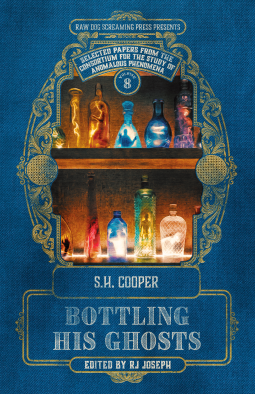How Patriarchy Hurts Men
While feminism often talks about how patriarchy hurts women, I believe that patriarchy hurts men as well. The following are two examples of media that present how mental health impacts men and women differently.
In the Avatar: The Last Airbender episode “The Warriors of Kyoshi,” Team Avatar meets Suki and the Kyoshi Warriors. Sokka initially seems skeptical of the fighting capabilities of a group of young women, but he soon comes around. There’s a scene between Sokka and Suki towards the end of the episode where Sokka apologizes, saying: “I treated you like a girl when I should have treated you like a warrior.” In response, Suki says: “I am a warrior…but I’m a girl too.”
I consider myself a feminist. Among other things, I think that both traditionally masculine traits (by which I mean things like leadership and courage) and traditionally feminine traits (such as collaboration, compassion, and emotional expressiveness) are valuable. And I think people of all gender identities can have a mix of these traits.
While feminism often talks about how patriarchy hurts women, I believe that patriarchy hurts men as well.
May is mental health awareness month, and I spent the month thinking about issues relating to mental health. I wanted to take a minute to discuss some thoughts I’ve had, even though it’s no longer May (whoops, my bad). More specifically, I want to use a book and a musical to discuss how gendered beliefs about men “should” respond to trauma and express their grief can negatively impact their mental health.
Bottling His Ghosts

I was so excited to be approved for an advanced reader’s copy (ARC) of Bottling His Ghosts by SH Cooper. This is a novella set to be released in July 2025.
Cooper’s novella tells the story of Netta, who recently lost her husband in an accident. In a state of grief, she returns to her family home to seek support from the people she is closest to. There, she discovers that her cousin, Thorn, whom she considers to be like a brother, is consistently drunk. Thorn never seemed to have an issue with alcohol previously. Yet, he’s suddenly drinking to the point that it’s negatively affecting his life.
We soon learn that Thorn has experienced his own trauma, but because societal expectations told him he needed to “be a man,” he didn’t feel like he could express his emotions. Instead, he turned to alcohol to numb his emotions.
Next to Normal
Next to Normal is a rock musical written by Tom Kitt and Brian Yorkey. It originally premiered on Broadway in 2009, starring Alice Ripley, who ultimately won a Tony Award for her performance.

Next to Normal has been receiving some renewed attention lately. A London production of the musical - starring Caissie Levy in the lead role - was professionally recorded and is currently available on PBS.
If I had to describe the plot of Next to Normal in a sentence, it would be to say that it’s about a mom/wife with bipolar disorder and the toll it takes on her family.
The Goodmans are an upper-middle-class family; husband Dan works outside the home, while wife Diana remains at home. The couple has two kids: Gabe and Natalie.
As the show progresses, we learn that Diana and Dan experienced a pretty significant loss. For Diana, grief seems to have manifested itself in the form of bipolar disorder.
Dan, on the other hand, feels like he has to bottle up his grief and focus his attention on helping Diana through various treatments.
As Diana sings to Dan, “Why stay? / Why stay? / So steadfast and stolid/ and stoic and solid / For day after every day.”
Dan’s way of coping with grief seems to be to ignore his own grief in favor of saving his wife from herself. Of course, this doesn't turn out to work so well.
Not only does this negatively impact Dan and how he processes his grief, but I’d argue that it’s not helping Diana or their children.
Men and Mental Health
In an editorial in the National Library of Medicine, Benita N Chatmon writes about how masculine norms are hurting men’s mental health.
“Toxic masculinity,” writes Chatmon, “is the demonstration of masculinities that are enforced by restriction in behaviors (e.g, crying, fear) based on gender roles that amplify existing power structures that favor the dominance of men. Toxic masculinity may lead to difficulty in expressing emotions, which is seen often.”
According to Chatmon, when masculine norms are rigidly adhered to, it can lead to things like substance abuse (as in the case of Thorn) and discouragement from seeking help (both in the case of Thorn and Dan).
Avoidance and Complicated Grief
While avoidance behavior can impact both men and women, we see it have a profound impact on both Thorn and Dan.
Both characters were influenced to engage in avoidance behavior in large part due to the messages they received about what it means to be a man. This leads to serious consequences both for themselves and the people around them.
I’d argue that it took the actions of the women in their lives to get them to face their demons head-on.
Conclusion
Both Bottling His Ghosts and Next to Normal provide examples of how men might experience grief differently based on societal expectations. Shining a light on issues like this can help us begin to figure out how to better support the people who need help.